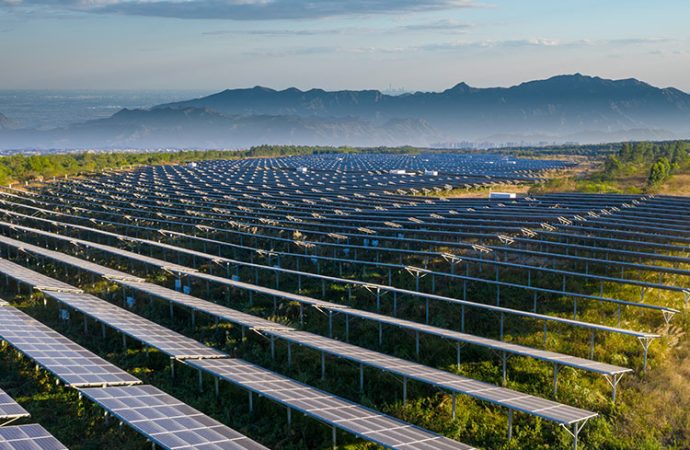Author Recent Posts Wajeeha Ashfaq Latest posts by Wajeeha Ashfaq (see all) Violations of International law by Israel in the ongoing conflict – November 2, 2023 Can BRICS replace G7 as a new international coalition? – September 26, 2023 Russia-Ukraine war poses threat to global food and energy security – September 15, 2023
Russia’s invasion of Ukraine has put pressure on the global economy, resulting in worldwide energy crises and a drop in Russia’s overall exports as a result of war. The hostities in the region have catastrophic impacts on the global economy. COVID 19 had already weakened the global economy while the impacts were further exacerbated by Russia Ukraine crises. Before the invasion, Russia and Ukraine were major suppliers of fuel and agricultural supplies to many regions of the world, including the European Union. This has significantly declined due to a number of issues, including economic sanctions and these countries’ unwillingness to deal with Russia. As a result, a considerable spike in prices has been observed, resulting in a global energy crisis, which has only become worse throughout the course of the 18-month invasion.
Russia has been a large supplier of food and fertilizers to food-deficit regions, as well as a key player in the world market due to its energy market. They are the sole suppliers of wheat to Somalia, for example, and account for more than 80% of Egypt’s wheat imports, 75% of Sudan’s, and more than 90% of Laos’. Furthermore, they contribute roughly 95% of sunflower oil imports to China and India, the two largest users. Similarly, many regions of the world, including South and Central America, West Africa, and parts of Europe (including Ukraine), rely largely on Russia and Belarus for fertilizer imports. Russia is an important contributor in the energy sector, accounting for around 10% of world energy production. It exports a large amount of all fossil fuels, including coal, oil, and natural gas. Russia supplied approximately 15% of global coal trade, 10% of global oil trade, and 8% of global gas trade in 2020.
The conflict in Ukraine, along with economic sanctions aimed at putting pressure on Russia, is compounding the existential crisis. Consumer price pressures are increasing as a result of extraordinary rises in food and fuel costs, which are affecting people globally. Food and animal feed prices are expected to rise significantly, according to the Food and Agriculture Organization (FAO). This is especially problematic for low-income households, which spend a big portion of their income on essentials like wheat and maize. The dispute has affected energy market forecasts dramatically, perhaps resulting in one of the greatest energy supply shocks ever. Developing countries are particularly vulnerable since a substantial portion of their revenue is spent on fuel. A decision to reduce reliance on Russia and almost cease trade with them, particularly by the European Union, has resulted in rising prices of commodities. This puts pressure on Russia-dependent economies such as Egypt and Lebanon leading to social unrest.
The conflict has had far-reaching consequences for South Asian countries, with India being an exception. India has a significant energy and trade cooperation with Russia, and its ability to retain relations with its European friends alongside has made it the region’s leading beneficiary. Its refusal to denounce Russia’s aggression in its energy sector has enabled it to strengthen its relationship with Russia, particularly in terms of lower-cost oil imports. Countries such as Sri Lanka and Pakistan, on the other hand, experienced dire consequences, with the former defaulting. Pakistan, on the other hand, is burdened by external loans, electricity shortages, and excessive inflation. Pakistan has to strike a balance with respect to its neighbor’s diplomatic move by preserving its relations with both the West and Russia. The situation might have been better for the state had the political leadership made a prudent choice while forming its foreign policy. In terms of economic volatility, the situation in Nepal and Bangladesh has been nearly identical.
In order to counter and balance Russian imports, the European Union and other countries have shifted toward renewable energy sources. Following the Ukraine-Russia issue, there has been a major change in global energy trends during the previous year. As a result, a debate about energy security, willingness to convert to renewable energy sources, and strategies to deal with supply chain interruptions has begun. Governments are aiming to reduce their reliance on the fuel-based economy and to adopt environmentally friendly resources, which will have a good impact on the planet’s health. Such programs include the Inflation Reduction Act in the United States, the REPowerEU plan in Europe, and the GX Green Transformation program in Japan. These efforts aim to reduce energy and technology expenses while also accomplishing sustainability objectives.
The Russia-Ukraine conflict, combined with the pandemic, emphasizes the worldwide need of securing food and energy sources. Rising energy prices are causing countries to reevaluate their reliance on imported fossil fuels and shift to non-fossil fuel alternatives. It emphasized the importance of governments investing in the resilience of global economies and society. Preparing for and reducing the effects of market disruptions and geopolitical problems is part of this. However, as a result of political tensions, developing nations are the most exposed to such shifts and disruptions. To compensate for the losses caused by such conflicts, these countries must extend their trade beyond the region. The conflict does not appear to be ending anytime soon, and Putin’s expansionist goals will deplete both countries’ resources while accomplishing nothing. It is now time for the West to take a hard stance, and action must be made to avert Russian expansionist aims before situations deteriorate further.
- Violations of International law by Israel in the ongoing conflict - November 2, 2023
- Can BRICS replace G7 as a new international coalition? - September 26, 2023
- Russia-Ukraine war poses threat to global food and energy security - September 15, 2023






















Leave a Comment
Your email address will not be published. Required fields are marked with *